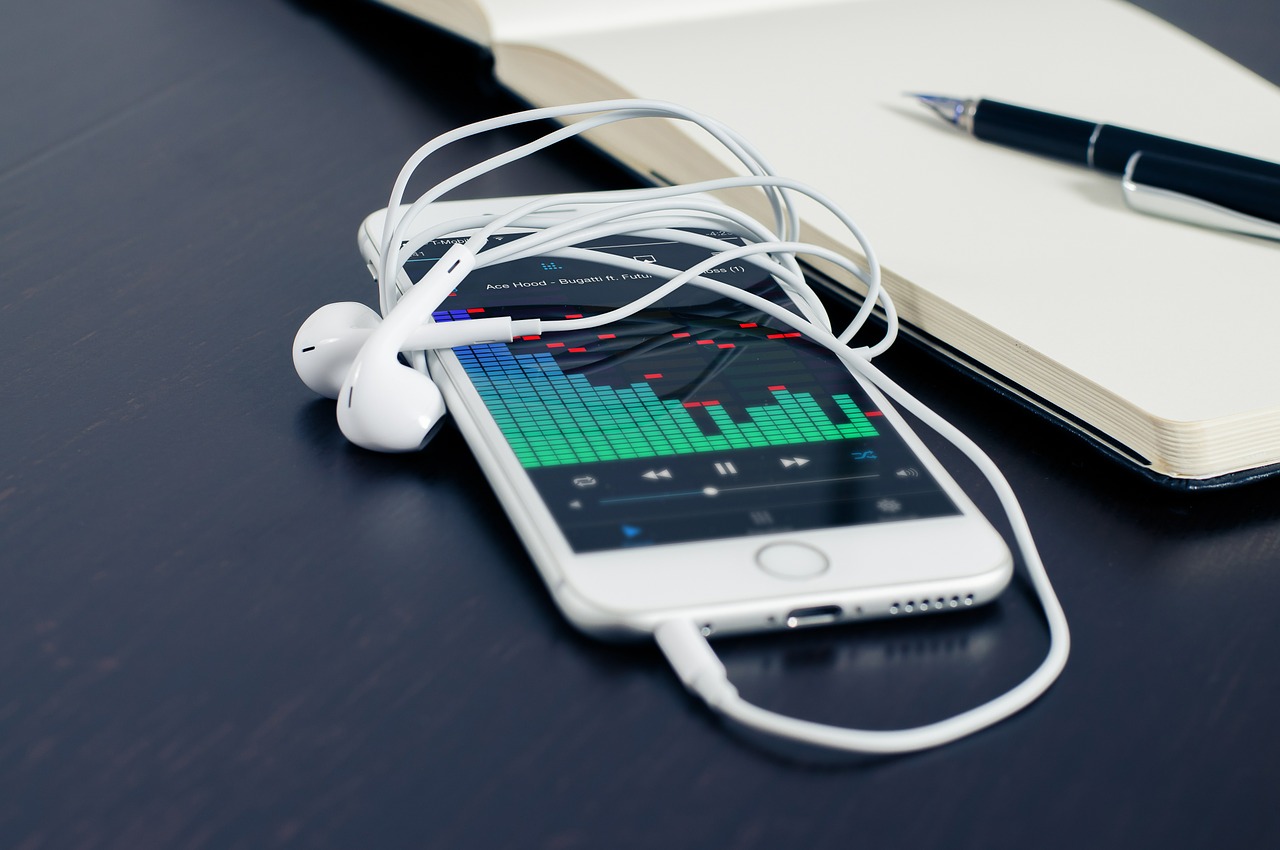Is streaming killing music?
Interview with
We've talked about how technology is changing music itself but what about the  music industry? Downloading and streaming have led to a huge drop in the amount of money a musician can expect to make from album sales, but is this an opportunity of a dead end? Nate Lanxon is a technology journalist at Bloomberg and he joins Chris Smith to explain.
music industry? Downloading and streaming have led to a huge drop in the amount of money a musician can expect to make from album sales, but is this an opportunity of a dead end? Nate Lanxon is a technology journalist at Bloomberg and he joins Chris Smith to explain.
Nate - Digital technology changed things in that it allowed people to buy and download individual songs and albums rather than having to go out and physically buy the CD. What streaming has done is change the business model once again to mean that instead of having to purchase individual albums or songs, you are now simply paying for access to the entire history of recorded music, or at least available recorded music. And that's meant that while there's a predictable, steady, stream of revenue and money coming in, there is less incentive for people to go out and buy something just because it's new and you've heard it somewhere on the radio or on television.
Chris - Cynics would say that "in the good old days" what artists tended to do was to make you buy an album by putting one or two choice morsels songs on there and then a whole load of other stuff that could, in some cases, be described as a bit of padding. Whereas with streaming and with download technology you listen to what you want to and you pay for what you want to buy.
Nate - Yes, it's put the access into the hands of the users because now they don't need to go out and pay £10 to see how much filler there is on an album. They can just sample the songs and the other side of it is that it's not just necessarily the new stuff that people are listening too and able to sample. If they're listening to a recording that someone says is heavily influenced by something that came four decades before, then they can go and listen to the thing that was four decades earlier and get a sense for that. And I think that generally that is a great thing for music and kind of democratises the history of all recorded music.
Chris - Can you give us some idea of the scale of the impact that this had had in money terms on producers, record companies and artists.
Nate - People are migrating to paying for streaming services and that has meant that, in some parts of the world, the money that is being made from streaming has exceeded the money made sales of downloads, which has in itself exceeded the sales made from CDs now for a long time.
The problem is how that money then gets distributed because there are many stories of songwriters saying that they earn very, very little from their recordings and that you can stream a song, or have a song streamed millions of times and make only a few thousand pounds or dollars from it, even from the very top performing artists. The issue is that the record labels are not necessarily distributing the money made from streaming services to artists in a way that the artists consider fair. And the knock-on effect there means that you get artists saying we don't want our stuff on streaming services because we don't make enough money from it.
Actually it has been shown in some areas that money is being made off their music; it's just that they're not receiving it because that side of the business world has not sorted itself out quite quickly enough.
Chris - I suppose it's fair to say that in the same way that the internet has disrupted multiple business models; newspaper publishing, book publishing and so on. It's broken the business model that had existed for decades and supported and sustained the music industry where there was a well-established system of; someone recorded your music, they helped you distribute it, they made money, you made money, and not everyone was a winner but it worked. Now we've got the system where on the one hand there's the internet being a great leveller. It gives opportunities to people who would never have those opportunities normally, they get visibility, to a vast audience potentially which they couldn't have done before but, at the same time in doing so, they've removed and destroyed the very thing that incentivises people to get into the industry in some respects - a financial reward - in the first place.
Nate - Yes, absolutely and I think that the other thing that's happened in a positive way is that there are now more places for music to appear. We have the world of video games and we have apps that are using recorded music in them and it's given people another way to consume music and, therefore, another way for artists to make money off their music. So it's a squeeze box; it's a boom and bust model that we're seeing the music industry go through. It's just that not all parts of the music industry have boomed or busted at exactly the same point; had they have done that would have been a lot better for everyone, possibly.









Comments
Add a comment